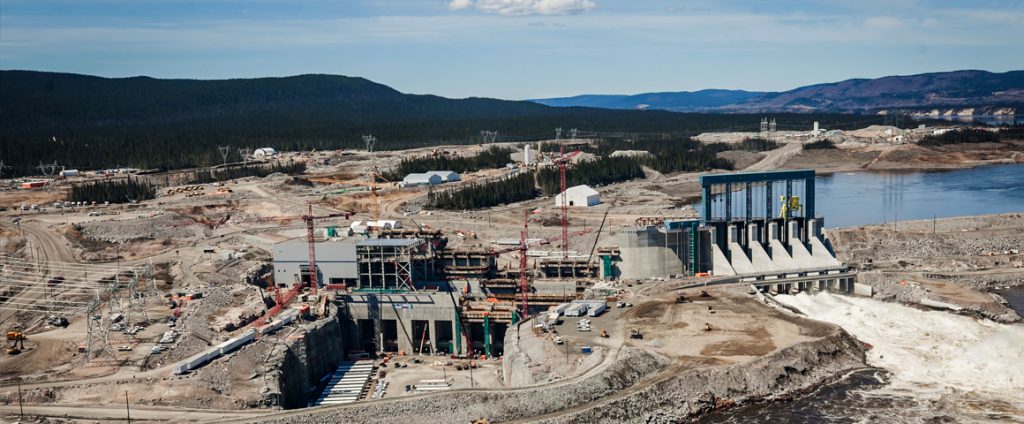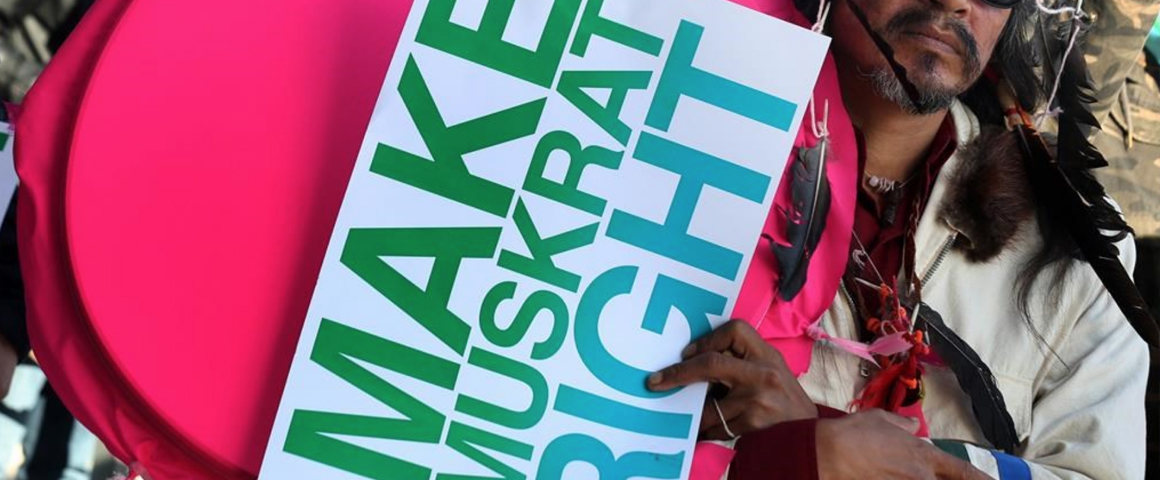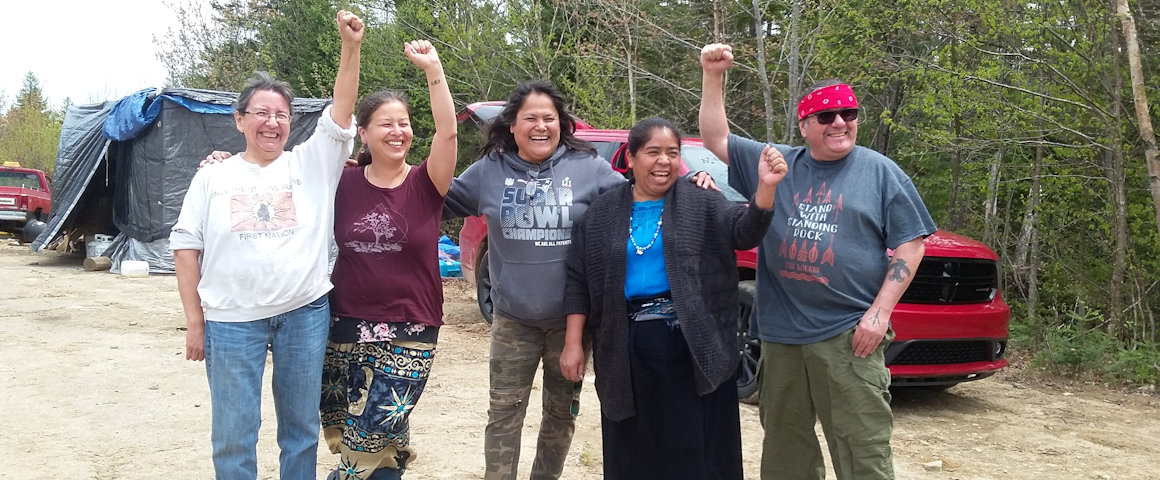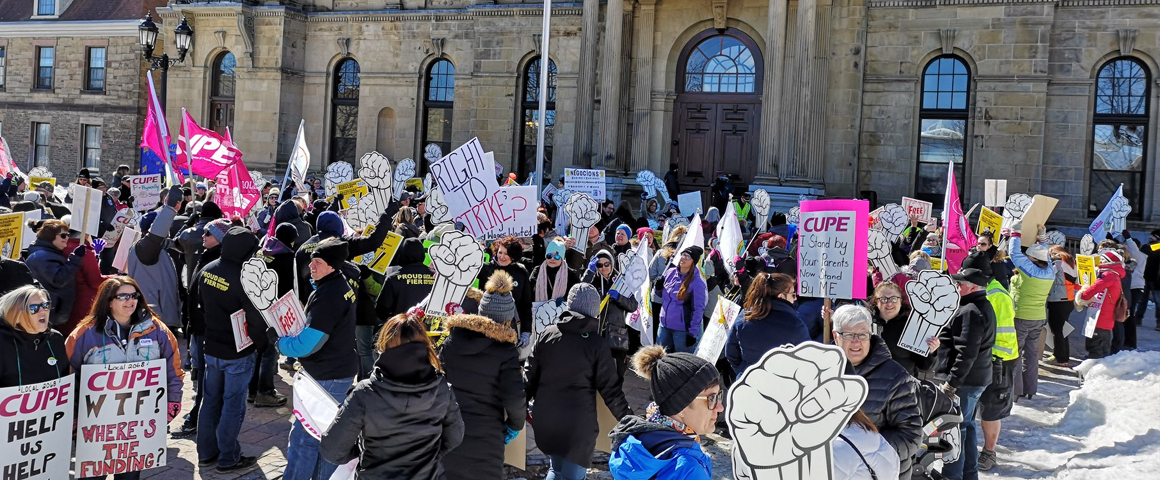As Nalcor’s hydro-electric project at Muskrat Falls in Labrador nears completion, the people of Newfoundland and Labrador are bracing for a brutal increase in electricity costs, perhaps as much as double the current rates. In a period when Dwight Ball’s Liberal government is pursuing austerity measures to cut the deficit, such an increase will only make a difficult situation for working people even worse. One could scarcely imagine how a family scraping by right now would fare if rates doubled, especially during our difficult winters. It is more bad news for a province that can barely keep young people and immigrants, facing an increasingly aging population.
Rate hikes are already being implemented over this summer, prompting a number of residents to protest in small groups in front of the Public Utilities Board (PUB) office in St. John’s. The government has insisted that it will put forward a plan to “mitigate” the all-but-inevitable increases when Muskrat Falls comes online, but it has yet to share much information beyond that.
Nalcor and Newfoundland Power are reminding residents that NL’s electricity rates are already lower than in the other three Atlantic provinces; we are supposed to be grateful as it is, and to accept that it might be alright to pay a few cents more per kilowatt hour to be “balanced” or “fair”.
Newfoundland Power has also asked the PUB for permission to increase its rate of return to shareholders from 8.5% to 9.5%, even though the utility’s after-tax profits are already in excess of $40 million a year, according to the province’s consumer advocate.
The last point gets to the problem here. Newfoundland Power is a private entity, a subsidiary of Fortis Inc. which holds a number of utilities companies around the world. They’re in it for the money. And despite being publicly owned, Nalcor and its NL Hydro subsidiary do not function much differently than any other for-profit venture. Nalcor’s current CEO, Stan Marshall, was in fact the CEO of Fortis prior to his current assignment.

The revolving door between business and government in the capitalist state is quite blatant in this case. Nalcor and NL Hydro build most of the infrastructure and distribute electricity to rural areas (about 38,000 customers) and certain industrial facilities. They sell the rest of the power to Newfoundland Power, which in turn sells it to us (over 260,000 customers) – a pretty sweet deal for Fortis, no doubt. Newfoundland Power purchases 93% of its electricity from NL Hydro, with the rest being made up from a handful of smaller generating stations that they own directly.
The talk of “mitigating” rate increases misses the point that our utilities are being marketed for the sake of satisfying shareholders with ever more profit, and not strictly for satisfying people’s needs. A people’s energy plan for Newfoundland and Labrador would place all energy and natural resource extraction, production, and distribution under public ownership and democratic control.
Newfoundland Power should therefore be nationalized along with a host of other entities including our oil sector. The profit incentive would be removed from considerations in rate increases and rates would be subsidized by a much expanded public-sector. There would also need to be negotiations with Quebec over distribution of power from the Churchill Falls generating station. Alternative means of generating power should also be pursued.
The Ball Liberals appear to be waiting until the fall before making any significant comments on how they will mitigate the cost of electricity. It will most certainly not entail stepping on the toes of Fortis or any other private interest. This is a time when Newfoundlanders and Labradorians should demand an energy sector that serves people’s needs, not corporate greed.
UPDATE – On August 16, protest organizers presented their concerns at a PUB hearing. NL Hydro stated afterwards that their proposal for a 6.5% rate increase to offset Muskrat Falls costs was no longer on the table, and that they would consider other means to pay the bills.




